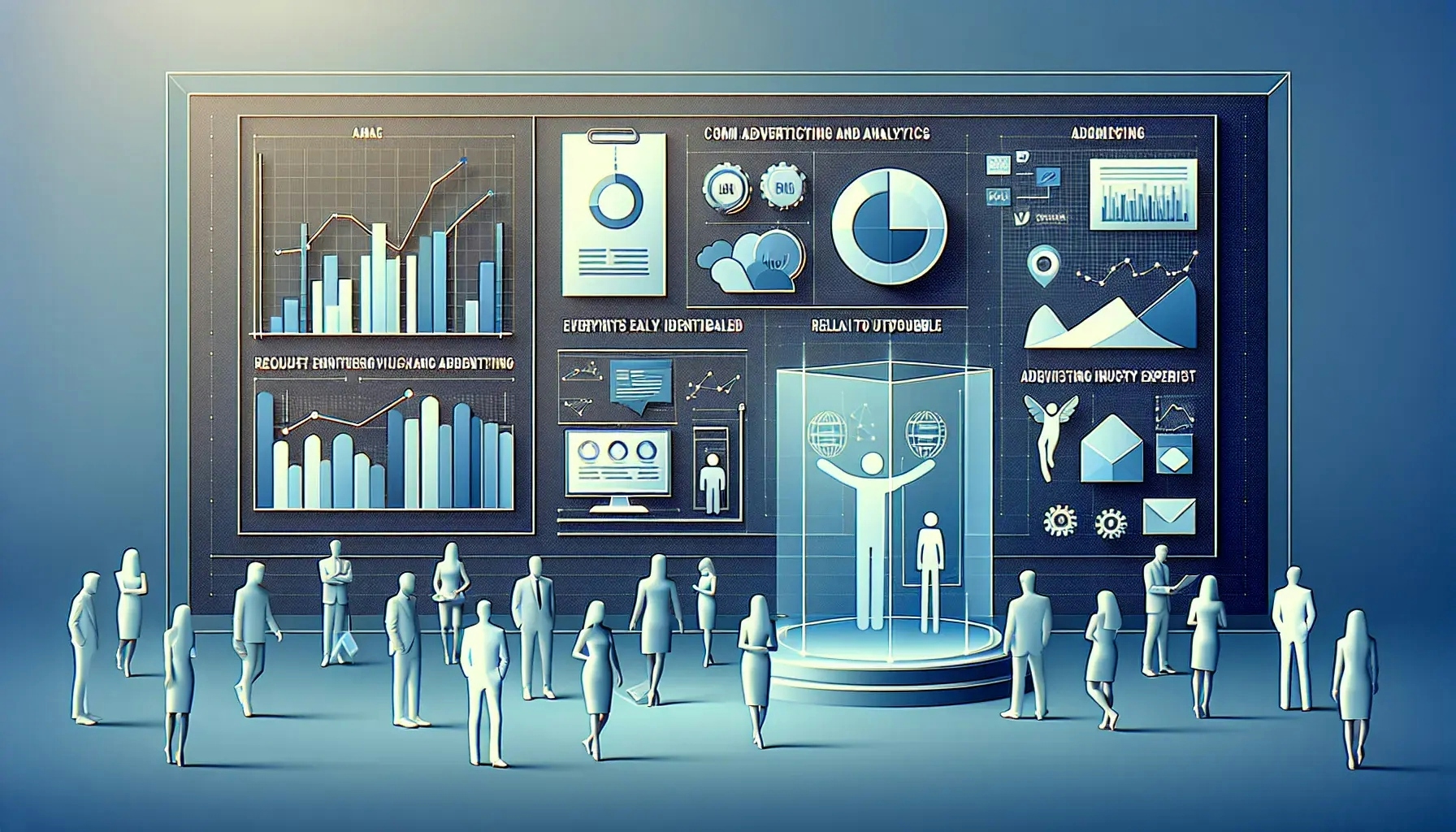Benefits of Data-Driven Advertising Campaigns
AdvertisingExperts.io

In the ever-evolving digital landscape, businesses are constantly seeking innovative ways to connect with their audience. One such method that has proven to be a game-changer is data-driven advertising campaigns. This blog post will delve into the benefits of these campaigns, offering insights into how they can transform your marketing strategy and boost your business growth.
Understanding Data-Driven Advertising
Data-driven advertising refers to the use of data to inform and guide advertising strategies. It involves collecting, analyzing, and applying information about consumers to create more targeted and effective advertising campaigns. The data used can range from demographic information to user behavior and preferences.
The beauty of data-driven advertising lies in its precision. It allows businesses to understand their audience on a deeper level, enabling them to create ads that resonate with their target market. This approach not only increases the likelihood of engagement but also improves the overall user experience by providing relevant content.
Moreover, data-driven advertising is not a one-size-fits-all approach. It allows for customization based on the unique needs and preferences of each consumer. This level of personalization is what sets data-driven advertising apart from traditional advertising methods.
The Power of Precision Targeting
One of the most significant benefits of data-driven advertising is precision targeting. This approach allows businesses to reach the right audience at the right time with the right message. By leveraging data, marketers can identify the most effective channels, times, and messages for reaching their target audience.
Precision targeting also reduces wastage. Instead of casting a wide net and hoping for the best, data-driven advertising allows businesses to focus their efforts on those most likely to be interested in their products or services. This not only increases the effectiveness of advertising campaigns but also improves return on investment.
Furthermore, precision targeting allows for continuous optimization. By monitoring campaign performance and analyzing the data, businesses can make informed decisions about where to allocate their resources and how to tweak their strategies for maximum impact.
Enhancing Customer Engagement
Another significant benefit of data-driven advertising is enhanced customer engagement. By providing personalized and relevant content, businesses can capture the attention of their audience and encourage interaction.
Data-driven advertising also allows businesses to create a more seamless user experience. By understanding the customer journey, businesses can ensure that their ads are not only relevant but also timely. This can significantly improve the customer experience and foster loyalty.
Moreover, enhanced customer engagement can lead to increased conversions. When customers feel understood and valued, they are more likely to take the desired action, whether that's making a purchase, signing up for a newsletter, or sharing content on social media.
Driving Business Growth
Data-driven advertising can significantly contribute to business growth. By enabling businesses to reach their target audience more effectively and engage them more deeply, data-driven advertising can drive increased sales and revenue.
Additionally, data-driven advertising can provide valuable insights that can inform business strategy. By understanding consumer behavior and preferences, businesses can make informed decisions about product development, pricing, and distribution.
Furthermore, data-driven advertising can help businesses stay ahead of the competition. In the fast-paced digital landscape, staying relevant and top-of-mind is crucial. Data-driven advertising allows businesses to adapt quickly to changing consumer trends and maintain a competitive edge.
Overcoming Challenges with Data-Driven Advertising
While data-driven advertising offers numerous benefits, it's not without its challenges. These can include data privacy concerns, the need for skilled data analysts, and the potential for information overload.
However, these challenges can be overcome with the right strategies and tools. For instance, businesses can ensure data privacy by complying with data protection regulations and using secure data management systems. They can also invest in training or hiring skilled data analysts to handle the data effectively.
Moreover, businesses can avoid information overload by focusing on the most relevant data and using data visualization tools to make sense of the data. By overcoming these challenges, businesses can fully harness the power of data-driven advertising.
The Future of Data-Driven Advertising
The future of data-driven advertising looks promising. With advancements in technology, businesses will have access to even more data and more sophisticated tools for analyzing and applying this data.
Artificial intelligence and machine learning, for instance, will play a significant role in data-driven advertising. These technologies can help businesses analyze large volumes of data quickly and accurately, enabling them to make more informed decisions and create more effective advertising campaigns.
Moreover, as consumers become more comfortable with sharing their data, businesses will have even more opportunities to personalize their advertising and enhance the customer experience. As such, data-driven advertising will continue to be a powerful tool for businesses in the years to come.
Harnessing the Power of Data-Driven Advertising
In conclusion, data-driven advertising offers numerous benefits, from precision targeting and enhanced customer engagement to business growth and competitive advantage. While it comes with its challenges, the potential rewards make it a worthwhile investment. As technology continues to evolve, data-driven advertising will only become more powerful and essential in the digital marketing landscape.